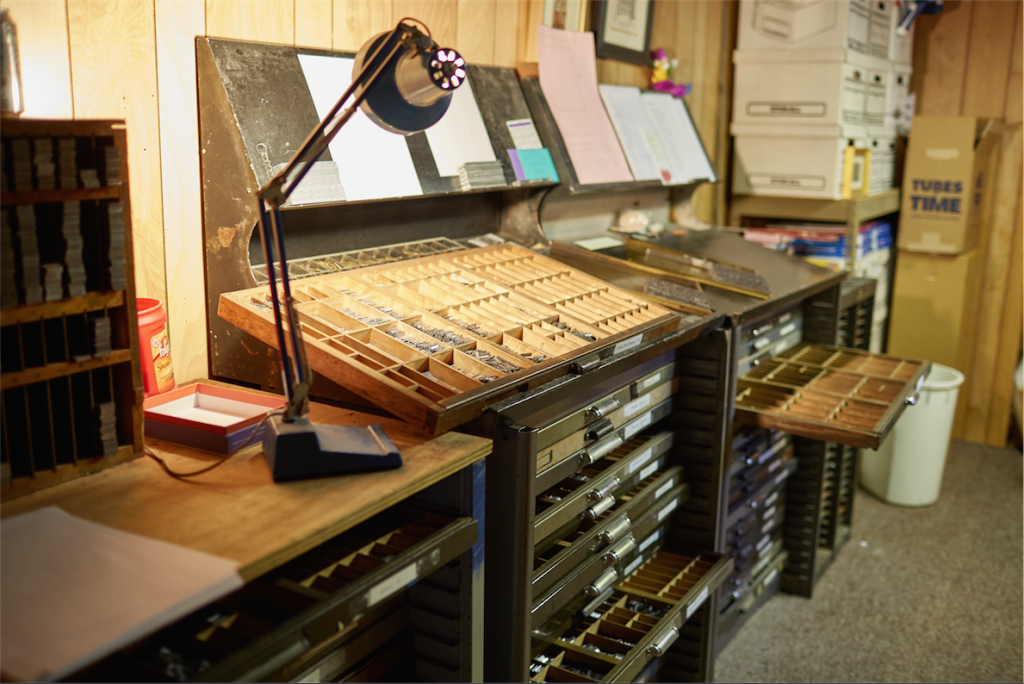The sun might be rising, burning mid-sky, or sinking when Timothy Hawley descends the narrow, green-carpeted staircase in his Douglass Boulevard home. The retired psychologist favors impulse over time. Some of his wife’s thousands of origami cranes hang suspended from the ceiling. He steps under them, maybe runs his ink-stained fingertips through his thinning white hair. Then, whatever time it is, it’s play time.
Hawley calls his basement his playpen. A work lamp lights the ceiling’s bare insulation and a half-dozen cabinets full of typefaces, some of which Hawley had custom cast. A slanted composition table by the wood-paneled wall waits for Hawley to ring his meditative singing bowl, put on one of his thousands of CDs. He’ll take metal letters from one of his 150 cases to arrange them into lines, paragraphs, pages. He calls this play. The two upper stories of his duplex contain books, books, books.

Many of which you might call booty, because Hawley’s a self-proclaimed pirate. He doesn’t usually ask permission to print what he prints. “Who’s gonna care if I print 27 copies?” he says. Ray Bradbury’s representatives cared after Hawley printed a Bradbury lecture. They demanded copies, got upset when Hawley couldn’t provide them. He gave most of them away for free, as he does with most of his work, but the limited-edition printings exploded on the secondary market, earning prices as high as $2,000 online.
The others didn’t mind, though. Since buying his first printing press in 1979, the 67-year-old has printed Kipling, Hemingway, Audubon. He printed a Lawrence Ferlinghetti poem, sent him a copy and received a nice postcard reply. Put James Taylor’s song “Millworker” on a card and got him to autograph it. Sold the books he made of Hunter S. Thompson’s “The Kentucky Derby Is Decadent and Depraved” for $75, watched them re-sell for $500.
For the past two years, he’s been working with the University of Louisville’s rare books archive to print a massive tome called The Laundry Book. It’s a 1920s journal by mystery writer Joanna Giles, a member of a London-based social group called the Launderers. Hawley has even replicated the letters and newspaper clippings pasted in the journal.
The Vandercook SP20 printing press looks like some kind of torture device, but Hawley steps up to it like a kid steps up to his bike. His foot presses a pedal. His wife could fold this page into a bird, but Hawley rolls it full of words instead. Still, it flies. See the work of Hawley and other local printmakers through Dec. 18 at the Portland Museum.
This article is courtesy of the October 2015 issue of Louisville Magazine. To subscribe to Louisville Magazine, click here.
Photos by Aaron Kingsbury



